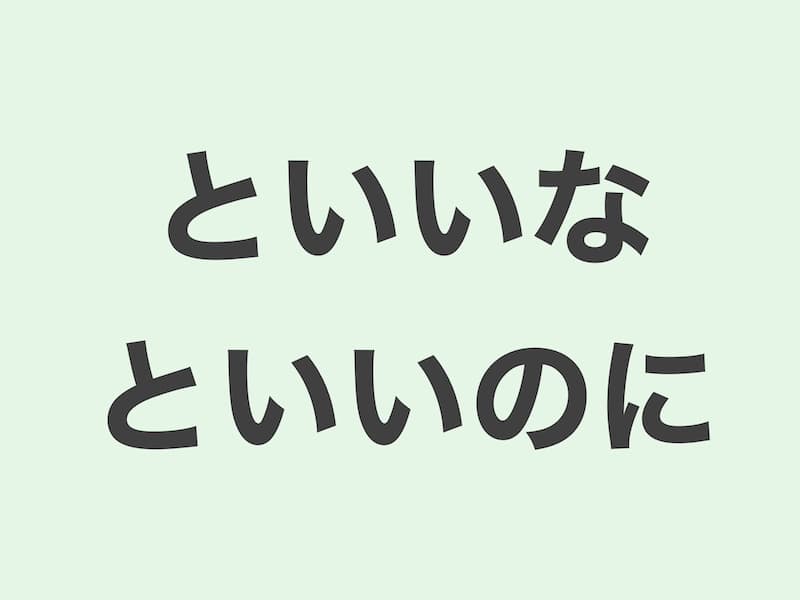説明 (Explanation)
文法(Grammar):普通形+といい(のに)な・たら/れば(いいのに)な
意味 (Meaning):望みや希望、期待を表す表現です。
英語(English):”いいな” means “I wish I could”
JLPT Textbook Recommendations
例文 (Examples)
- 日本に行けるといいのに(な)。
日本に行けるといいな。
日本に行けたらいいのに(な)。
日本に行けたらいいな。
日本に行ければいいのに(な)。
日本に行ければいいな。
- 明日晴れるといいのに(な)。
明日晴れるといいな。
明日晴れたらいいのに(な)。
明日晴れたらいいな。
明日晴れればいいのに(な)。
明日晴れればいいな。
- 雨が降らないといいのに(な)。
雨が降らないといいな。
雨が降らなかったらいいのに(な)。
雨が降らなかったらいいな。
雨が降らなければいいのに(な)。
雨が降らなければいいな。
ひらなが (Hiragana)
- にほんにいけるといいのに(な)。
にほんにいけるといいな。
にほんにいけたらいいのに(な)。
にほんにいけたらいいな。
にほんにいければいいのに(な)。
にほんにいければいいな。
- あしたはれるといいのに(な)。
あしたはれるといいな。
あしたはれたらいいのに(な)。
あしたはれたらいいな。
あしたはれればいいのに(な)。
あしたはれればいいな。
- あめがふらないといいのに(な)。
あめがふらないといいな。
あめがふらなかったらいいのに(な)。
あめがふらなかったらいいな。
あめがふらなければいいのに(な)。
あめがふらなければいいな。
英語翻訳 (English Translation)
- I wish I could go to Japan.
I hope I can go to Japan. - I wish it would be sunny tomorrow.
I hope it will be sunny tomorrow. - I wish it wouldn’t rain.
I hope it won’t rain.





コメント